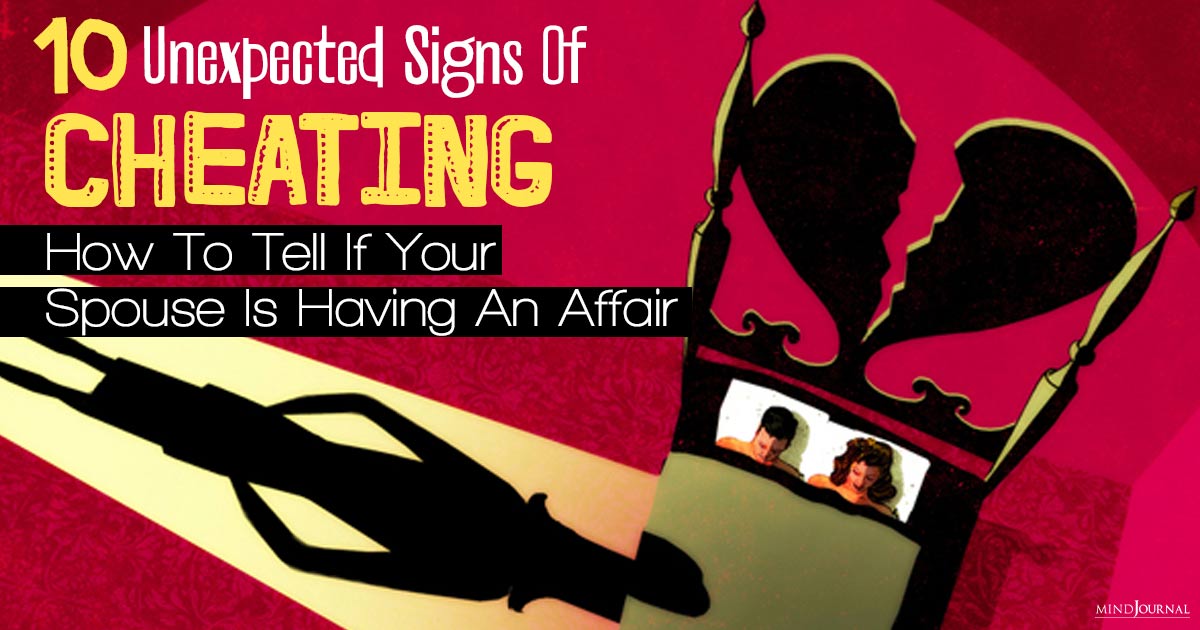If you suspect that your partner might be having an affair, then instead of blowing up on them instantly, you can keep a few things in mind that will help you deal with this, in a more constructive and healthy manner.
Key Points: People define infidelity differently; don't assume you and your partner are on the same page with what constitutes a breach of trust. Not talking about your fears will likely result in your feeling worse over time. Conversation is key. Rather than opening the conversation with accusations, open with your fears. It's more likely to invite honest dialogue.
Some of the most painful moments I’ve witnessed in my sex therapy practice occur when a client suspects their lover of having an affair. Everyone knows relationships are challenging at times, but feeling that your partner is cheating takes these challenges to a whole new level of awful.
Unfortunately, there are no easy answers here. People proceed in a variety of ways, each more painful than the next. Sometimes, people snoop. They access their partner’s texts, search their laptops, secretly listen to their phone calls, and look through GPS records. People know that sleuthing is a bad idea, but they feel justified by their suspicions and that they have no choice.
Some accuse their partner, often waiting until they are desperate, so the conversation quickly becomes hostile. Spiteful arguments breed confusion and amplify disconnection between lovers. Some folks, afraid of such outcomes, chose to stay quiet about their fears—terrified that initiating a conversation will give them the proof they’d rather not have. For these folks, it’s easier to deny the problem than face it head-on.
Ultimately, though, relationship issues are like mold growing in your fridge. When ignored, a small bruising can morph into decay and ultimately decompensation in what feels like overnight.
Related: Can You Ever Affair-Proof Your Relationship
What Can You Do If You Suspect Your Partner Is Having An Affair?
Initiating a conversation with your partner is probably your best bet. Keeping these five things in mind will increase the odds that your conversation will feel more productive than destructive.
1. Before you initiate a conversation, determine what you’d like to accomplish.
Do you need something from your partner that you aren’t getting—more emotional connection or physical closeness, perhaps? Would you like your partner to agree to couples therapy?
Having goals for the conversation will help you keep what is likely to be a very emotional discussion on track and focused.
2. Rather than opening the conversation with accusations, open with your fears.
Yes, this is a more vulnerable place to start. But it’s also much less likely to put your partner on the defensive and thus more likely to invite honest dialogue. “I’m scared I’m losing you” is a good place to start.

3. When emotions are running high, it’s difficult to offer people the benefit of the doubt.
But try not to rush to judgment and assume guilt before you’ve had a chance to thoroughly discuss your concerns. This is someone that you love or at least care for deeply.
Fighting fair is good for you—it helps ensure that you will have no regrets about your own behavior down the road. When we are afraid, it can be easy to misperceive others’ behavior. What looks like infidelity maybe something different once you gather more information.
4. People define infidelity differently.
Don’t assume that you and your partner are on the same page with what constitutes a breach of trust. Is regular dialogue with an old lover OK? How about a virtual emotional or sexual relationship?
People mistakenly suppose that everyone defines infidelity similarly, and this is far from reality. It’s normal for couples who are willing to have this discussion to find themselves negotiating these terms.
5. Consider your own history.
Have you been cheated on before? Have you been suspicious of other partners, too? Sometimes it’s helpful to ask a close friend their perspective on your personality rather than assume you see yourself accurately.
If trust is an issue, acknowledge that in your conversation with your partner. Openly recognizing whatever unhelpful tendencies you bring to the table helps cultivate a more productive dialogue.
Related: 3 Stages Of Rebuilding Trust In Your Relationship After An Affair
Your Biggest Fears Are Realized And You Determine That Your Partner Is Cheating. Now What?
Many people find themselves in this traumatizing situation, so I assure you that despite your misery, you aren’t alone. Learning that your partner has cheated can be extraordinarily destabilizing on a variety of levels. You need support right now, so reach out to trusted friends and perhaps a therapist.
Step one involves focusing on self-care. Things like sleep, exercise, journaling, and eating healthy may not seem important to you now, but they will help you find your sea legs. Be patient and gentle with yourself—it’s typically better to avoid major life decisions or changes when you are startled and upset. Real clarity can take a while. Couples can recover from infidelity—even find themselves stronger as a result—but healing takes time.
Modern life offers more opportunities for infidelity than at any point in recorded history. This shocking reality has led some people to initiate rather drastic changes to the traditional monogamous relationship—whether it be with consensual non-monogamy agreements or simply avoiding long-term committed relationships altogether. It is suggested by some futurists that many people will prefer the emotional safety of intimacy with avatars or robots to human partners in the world of the future.
But for now, most of us still prefer the delights, and the challenges, of long-term monogamy. Communicating about your relationship fears is probably your best bet in maintaining the health of your romance.
Written By Marianne Brandon Originally Appeared On Psychology Today










Leave a Reply